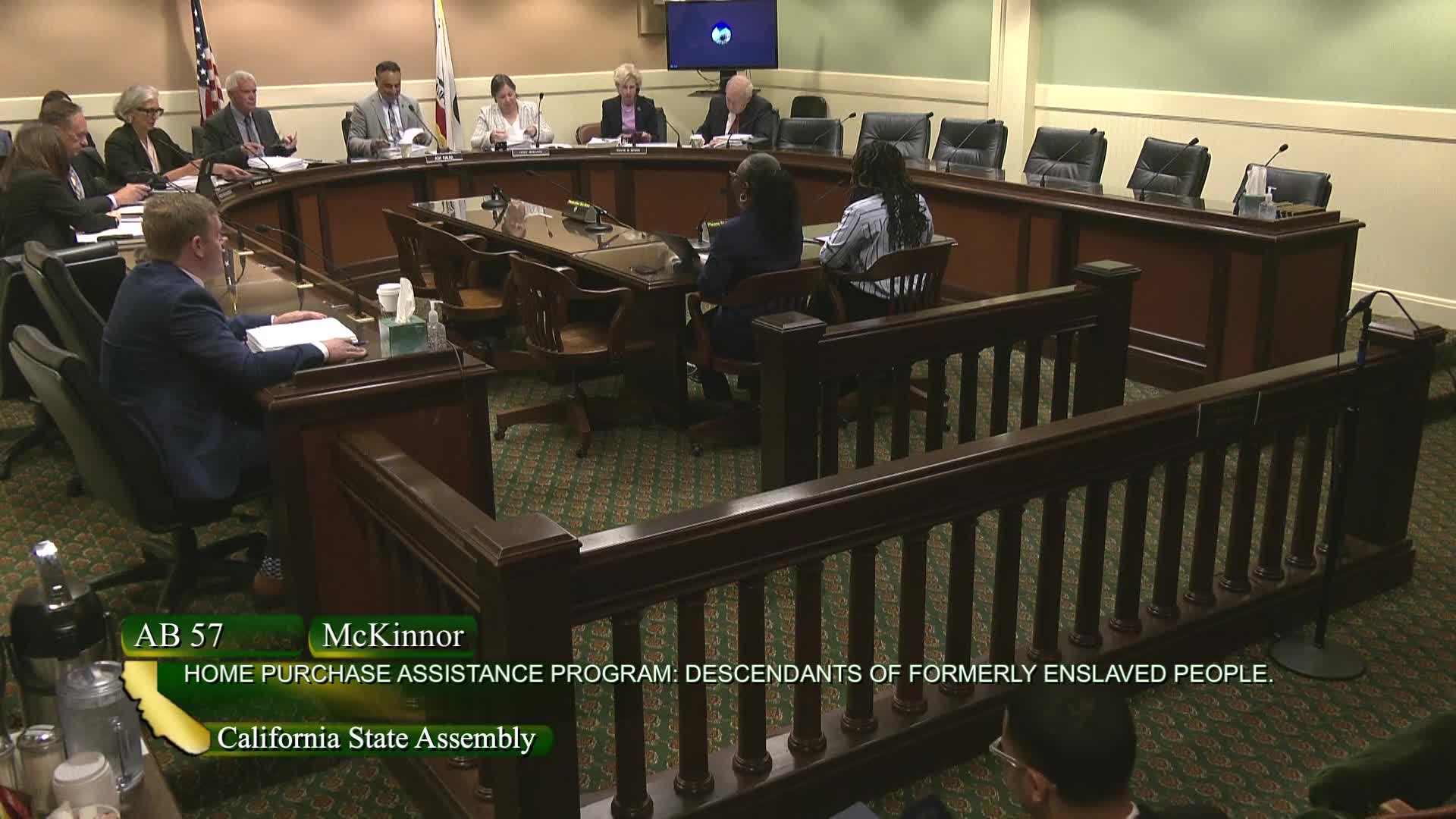Article not found
This article is no longer available. But don't worry—we've gathered other articles that discuss the same topic.
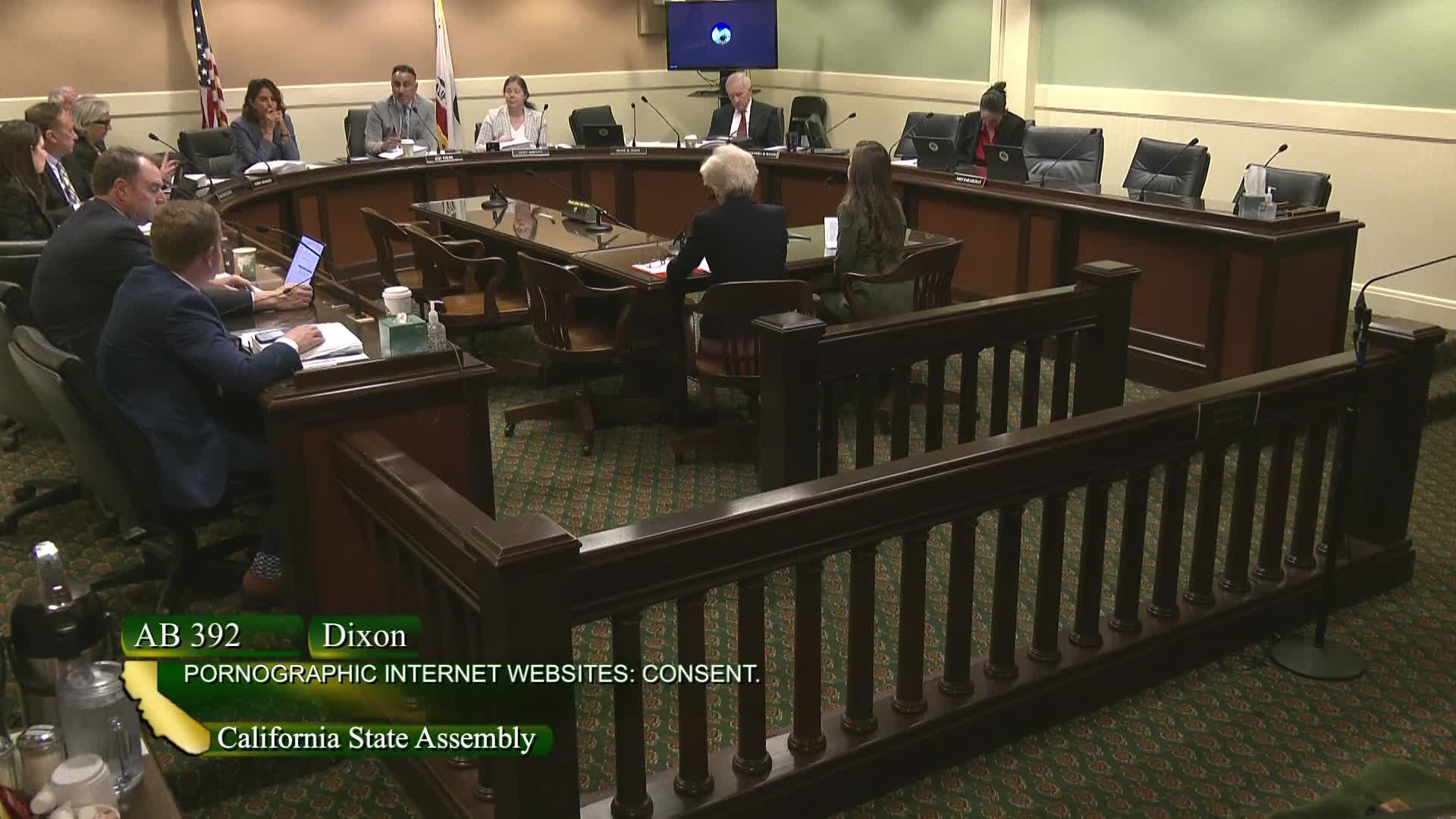
Assembly committee advances bill to broaden restraining-order tools and penalties for assaults on transit workers
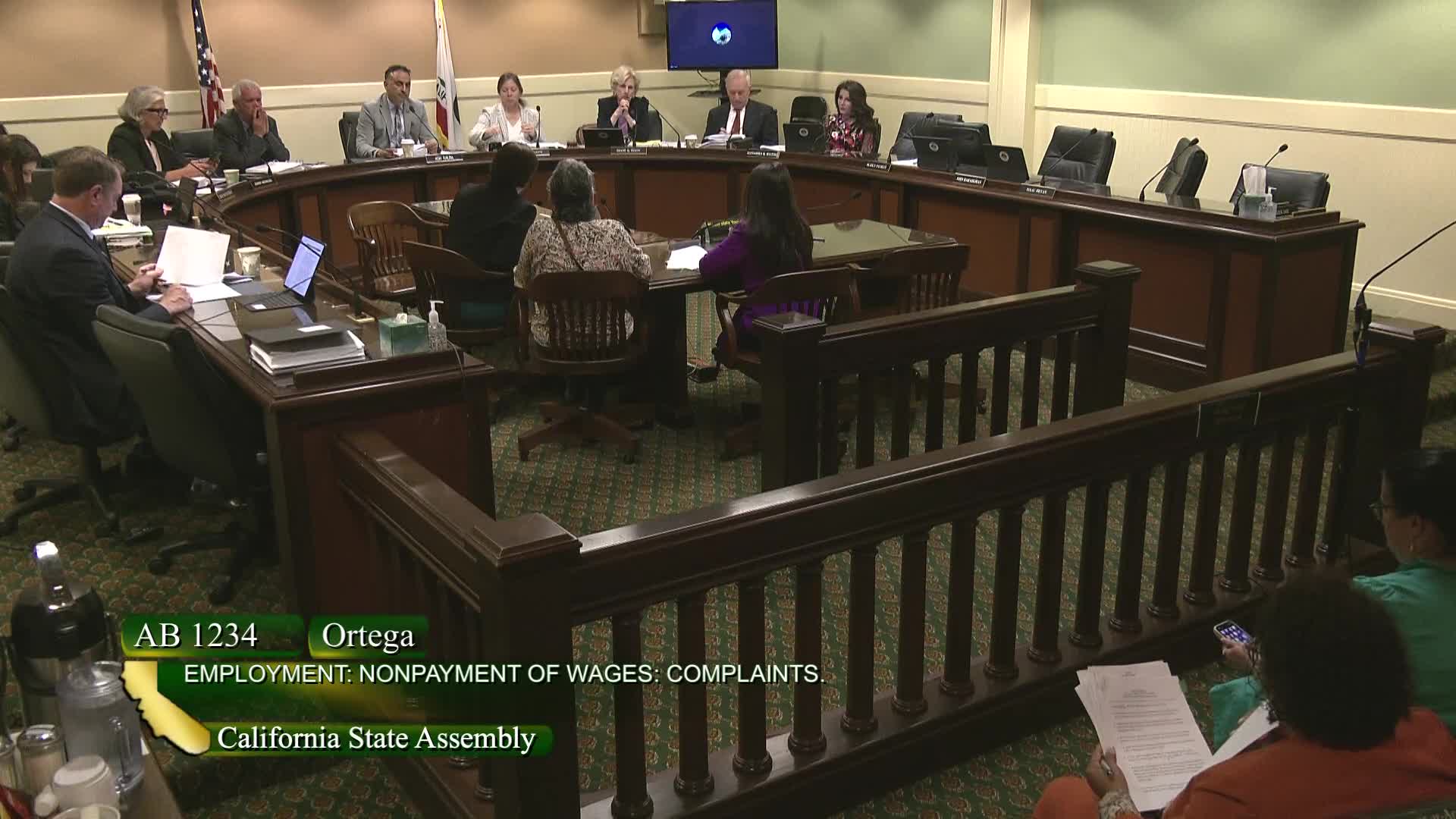
Committee advances reform to encourage employer participation in wage-claim process
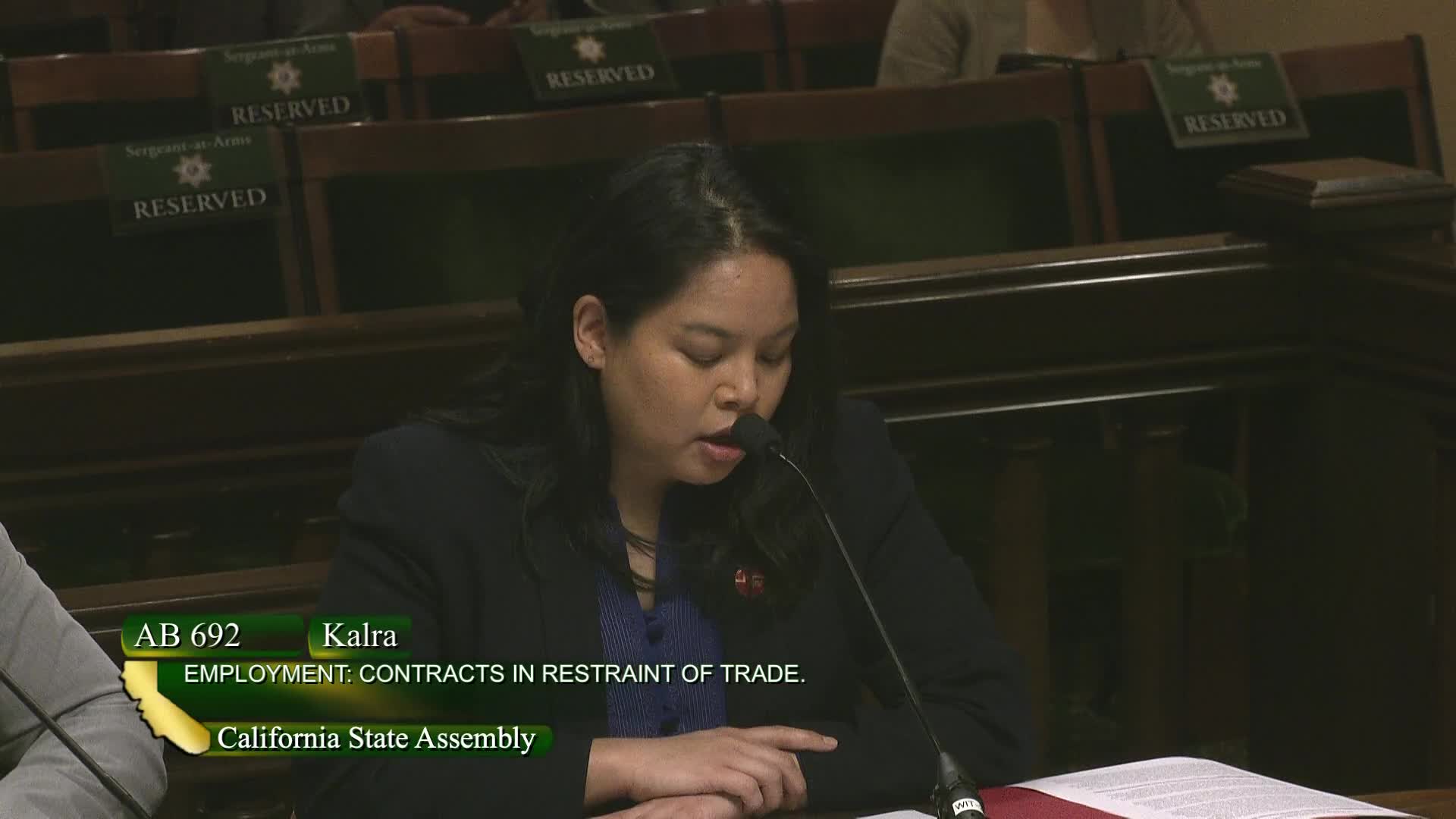
Committee advances bill to ban employer "stay-or-pay" debt contracts for job training
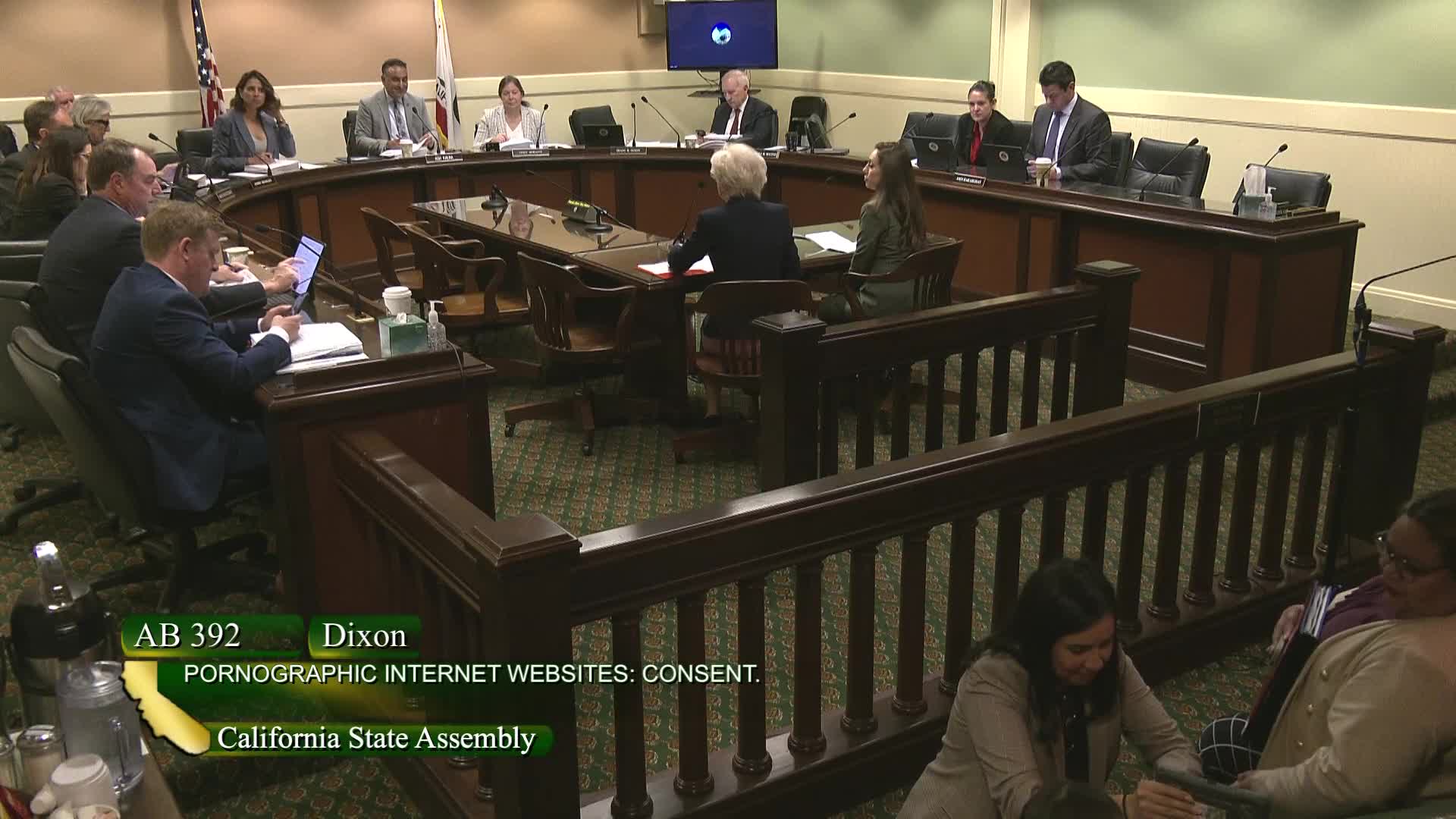
Committee advances bill to require verification and takedown procedures for nonconsensual explicit content
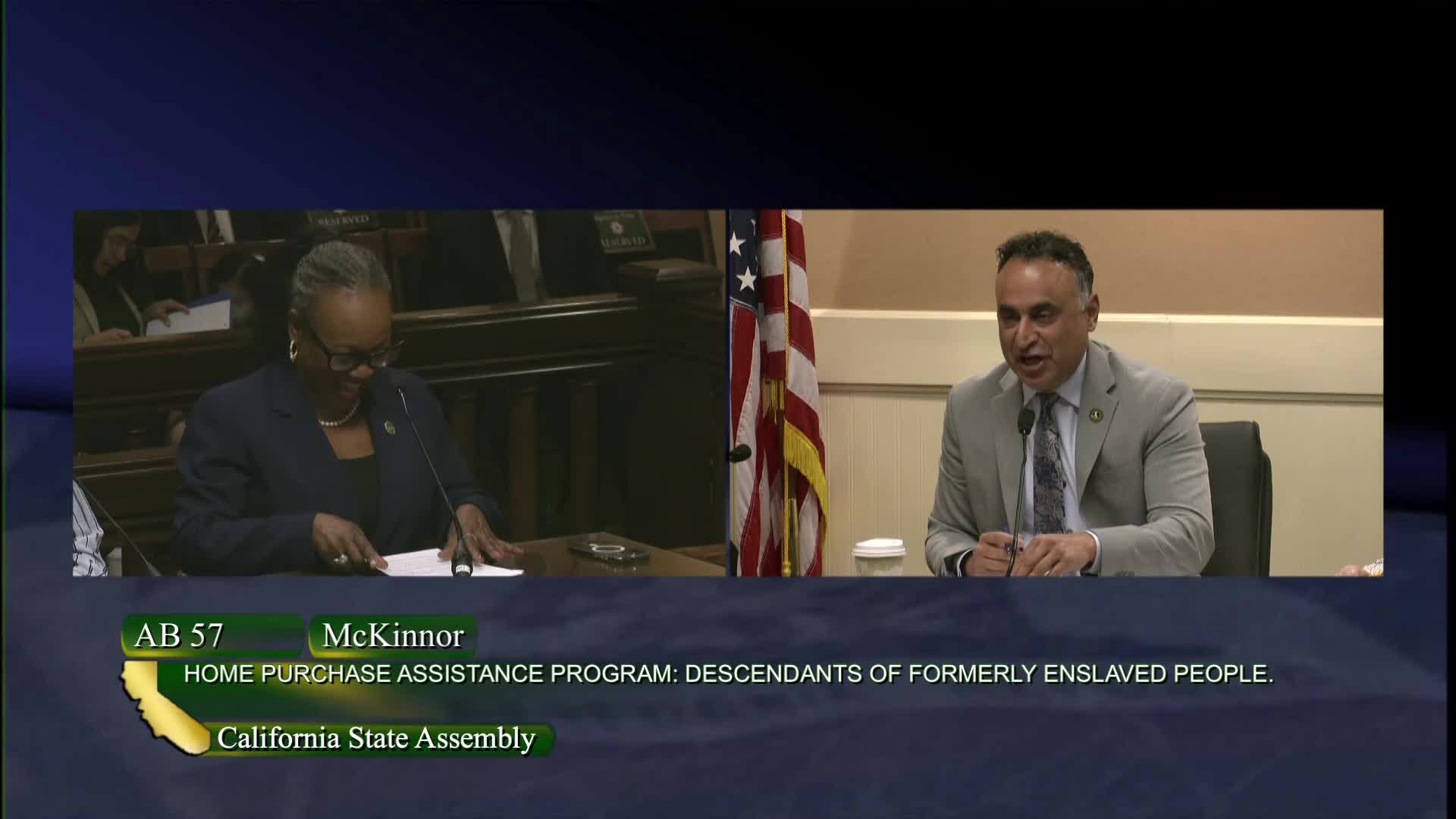
Committee advances bill to standardize caregiving arrangements for immigrant families facing detention
